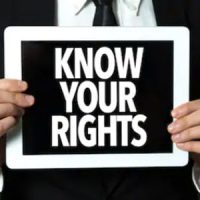The U.S. Department of Justice has been quite active in pursuing suspected cases of COVID-19 fraud. This includes individuals and businesses accused of misusing funds distributed under the CARES Act, such as Economic Injury Disaster Loans (EIDL). Indeed, many people who took out such loans may now be surprised to learn they are facing potential criminal prosecution.
Kentucky Judge Refuses to Order New Trial for Man Convicted of Fraud in Obtaining $100,000 in EIDL Funds
As with any criminal investigation, it is essential that you understand–and assert–your constitutional rights when dealing with the government. You should never answer questions without the assistance of a qualified attorney. And you should never assume that something you say out of court will be later deemed inadmissible as evidence against you.
A recent EIDL fraud case, United States v. Diyali, provides a case in point. Federal prosecutors in Lexington, Kentucky, charged the defendant with one count of wire fraud in connection with obtaining EIDL funds. According to prosecutors, the defendant applied for these funds for his insurance brokerage even though “the company had no significant business expenses, or even any business activity.” Nevertheless, prosecutors said the defendant misrepresented the business had $100,000 in income during the 12 months preceding the COVID-19 pandemic. The defendant then allegedly used the $49,000 in EIDL funds that he received to invest in cryptocurrency and stocks.
The jury found the defendant guilty. The defendant moved for a new trial on a couple of different grounds. One argument he raised was that at the time of the trial the EIDL funds were “not yet due for repayment.” Since he had not actually defaulted on the loan, the government could not prove he intended to deprive it of its money. The judge noted that a federal appeals court had previously rejected a similar argument, explaining that a “a good-faith belief that the victim will be repaid and will sustain no loss is no defense at all.” Similarly, the judge here said that was not a valid defense.
The defendant also raised Fifth Amendment concerns. Specifically, he challenged the prosecution’s use at trial of statements that he made to the government prior to his indictment. The defendant argued this violated his right against self-incrimination.
But as the judge explained, the defendant was not under arrest when he initially chose to speak to the government. The government was therefore not required to give a Miranda warning. Anything he said–or did not say–was fair game for the prosecution at trial. In this case, the prosecution used the pre-indictment statements to contradict the defendant’s trial testimony, which the judge said was permissible under the Fifth Amendment.
Speak with a Tampa, Florida, COVID Fraud Defense Attorney Today
Many people’s first instinct when confronted by allegations of wrongdoing is to “try and explain their side of the story.” But it is never a good idea to speak with law enforcement or a prosecutor on your own. Especially the current climate surrounding alleged misuses of COVID-related fraud, you should always work with an experienced Tampa Economic Injury Disaster Fraud lawyer who can help protect your rights. Contact Trombley & Hanes today to schedule a consultation.
Source:
scholar.google.com/scholar_case?case=7057056967291327775





